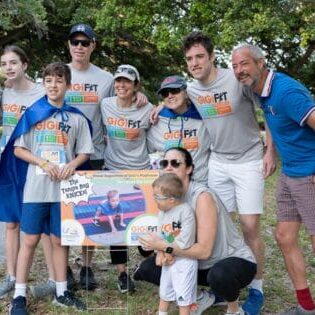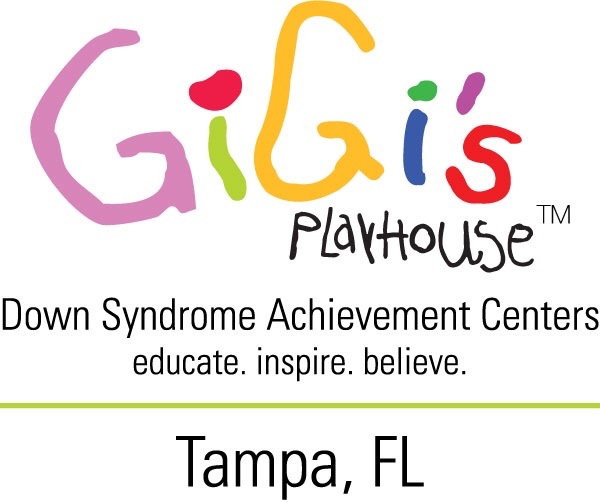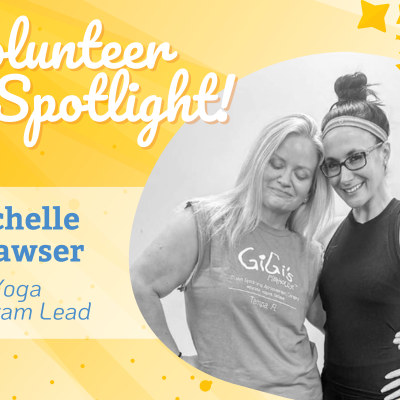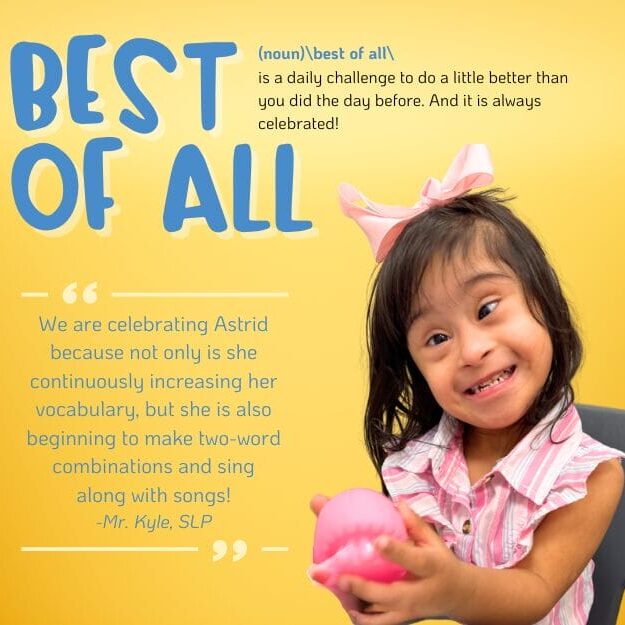Enhancing Well-being: Yoga’s Gifts for Individuals with Down Syndrome
In the realm of wellness practices, yoga stands out as a beacon of holistic health, offering benefits that extend far beyond physical fitness. Its gentle yet profound impact on the mind, body, and spirit has garnered attention and acclaim across diverse populations. Among those who have found strength and joy in yoga are individuals with Down syndrome.
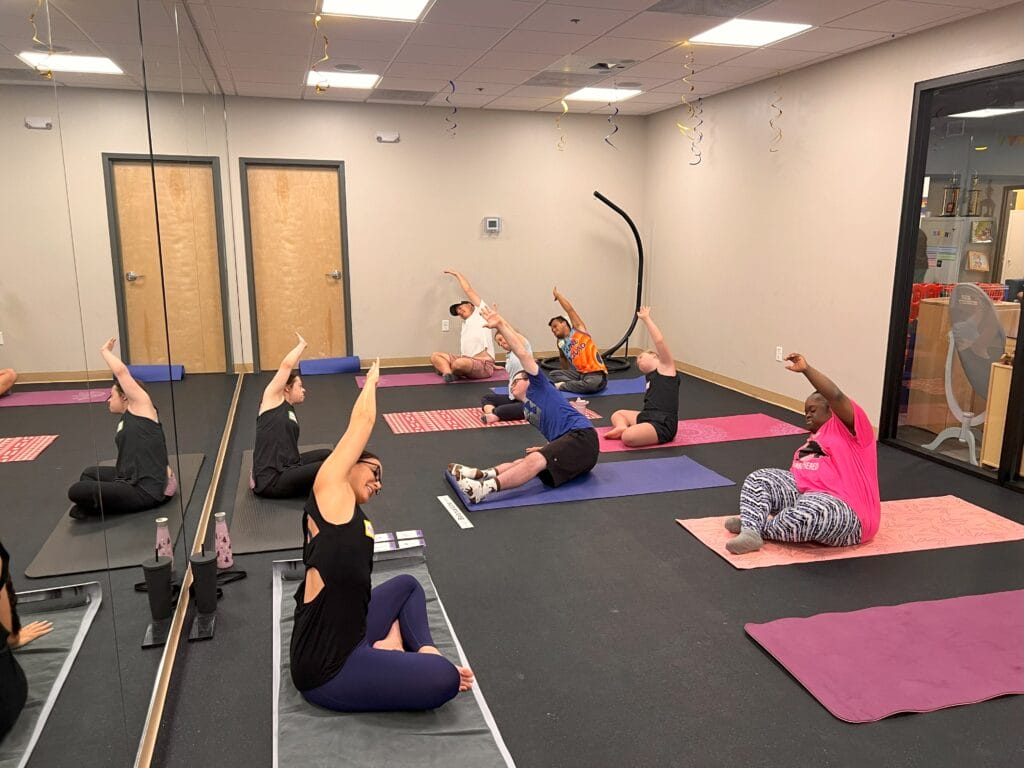
Physical Wellness
At its core, yoga is a discipline that nurtures physical health through a blend of postures, breathing techniques, and meditation. For individuals with Down syndrome, these elements work together to enhance physical wellness in several ways:
- Improved Muscle Tone and Strength: Yoga postures, practiced mindfully and with proper alignment, help develop muscle tone and strength. This is particularly beneficial for individuals with Down syndrome, who may experience hypotonia (low muscle tone) and benefit greatly from exercises that promote strength and stability.
- Enhanced Flexibility: Yoga gently stretches and lengthens muscles, promoting flexibility and joint mobility. Increased flexibility can alleviate discomfort and reduce the risk of injury, especially for individuals with Down syndrome, who may have joint laxity or stiffness.
- Better Balance and Coordination: Yoga incorporates balance poses and movements that require coordination, helping improve proprioception and spatial awareness. Enhanced balance and coordination also contribute to greater confidence and independence in daily activities.
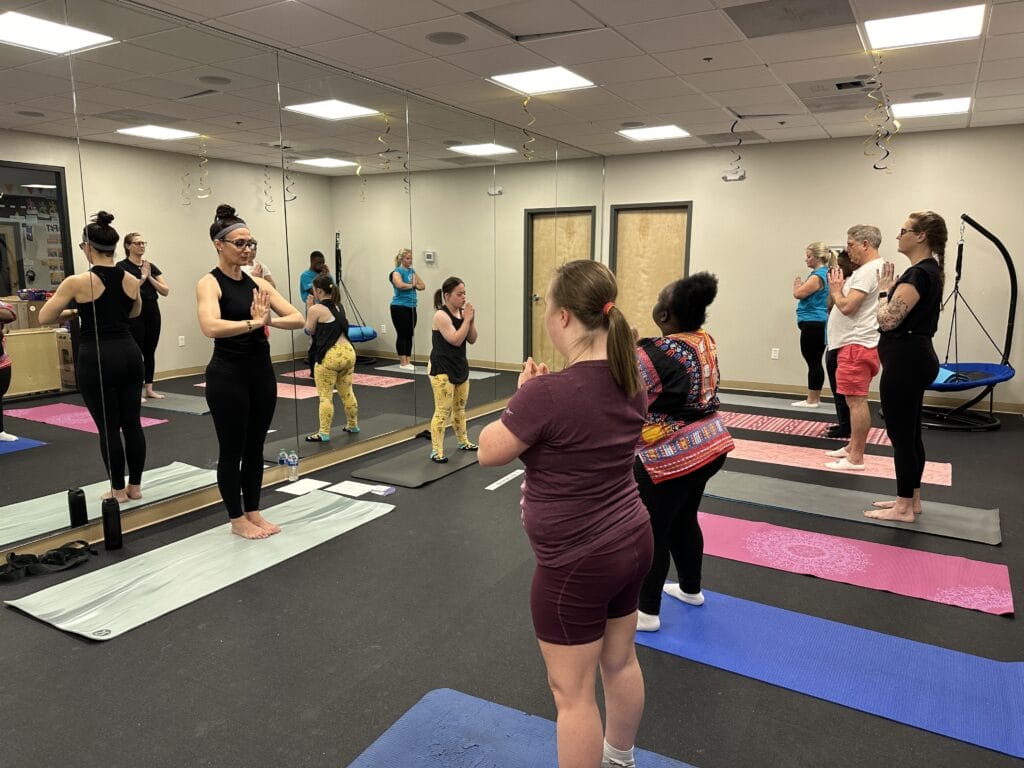
Emotional Well-being
Yoga’s impact extends to emotional well-being as well by fostering a sense of inner peace, resilience, and self-acceptance. Yoga offers invaluable emotional support such as:
- Stress Reduction: Mindful breathing and relaxation techniques practiced in yoga help alleviate stress and anxiety, making yoga a potent tool for emotional regulation.
- Boosted Self-esteem: Yoga encourages self-expression and compassion, fostering a positive self-image. Through the practice of yoga, individuals with Down syndrome can cultivate a deep sense of self-acceptance and appreciation for their unique abilities.
- Emotional Resilience: The mindfulness aspect of yoga also fosters emotional resilience by teaching those who practice how to navigate life’s challenges with equanimity and grace and to face adversity with courage and optimism.
Social Connection
Yoga is not just a solitary practice; it also offers opportunities for social connection and community engagement. Group yoga classes provide a supportive environment where individuals with Down syndrome can connect with peers, cultivate friendships, and celebrate their shared journey:
- Inclusive Spaces: In recent years, there has been a growing emphasis on creating inclusive yoga spaces that welcome individuals of all abilities. These inclusive classes provide a supportive and non-judgmental environment where all are welcome to participate fully and authentically.
- Sense of Belonging: Yoga communities foster a sense of belonging and camaraderie, allowing meaningful connections to form with those who share their passion for wellness. These connections provide vital social support and enrich their overall quality of life.
- Shared Learning and Growth: In a group yoga setting, individuals with Down syndrome have the opportunity to learn from experienced instructors and fellow practitioners, fostering continuous learning and personal growth. The shared experience of overcoming challenges and celebrating achievements creates bonds that continue to grow off the yoga mat.

In conclusion, yoga offers a wealth of benefits encompassing physical, emotional, and social dimensions of well-being. By embracing the practice of yoga, individuals with Down syndrome can cultivate strength, resilience, and joy. And as yoga continues to evolve as an inclusive and accessible practice, its transformative power holds promise for individuals of all abilities.
Recent Posts
